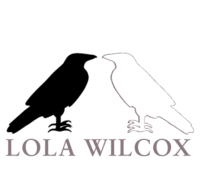Division 5 – Managers and Executives as Change Agents
Peer review in this division is for managers and executives who approach their responsibilities systemically and experientially, using Small Group Development (Division 2) and Organizational Development Consultants (see Division 3) strategies for developing their organizations and intervening in the organization’s environments. Their focus includes the application of an open systems view in their organization, along with the findings of the social sciences in the leadership of their organizations. Their work includes using their knowledge of political and power dynamics to foster the energy for change. The purpose of the change is to enhance the effectiveness of the organization in its environment and the quality of work life for its members. Attention is paid to enhancing human dignity, honoring the dignity of all kinds of work and meeting the legitimate needs of their stakeholders.
Broad Criteria for Work in this Division
These are expectations about what a new member should be working in or on – not that a consultant would meet all of these criteria at the time of application. A new member meets the criteria for peer review in this division when she or he has the following proficiencies:
-
- Performs all leadership, management and/or professional actions ethically and competently including using information in an effective and ethical way, never using it in a way which would damage its source, and modeling ethical, congruent and effective personal behavior.
- Recognizes and appropriately designs and facilitates processes that accommodate the unique diversities; e.g. cultural, race, gender, age, sexuality and social class, represented in the organization and its constituencies.
- Demonstrates knowledge and skills for scanning his or her organization’s environment, developing strategic plans and linking plans with organizational effectiveness interventions which will help the organization be responsive to its customers and stakeholders.
- Develops and analyzes performance data (behavioral, operational, financial, etc.) about his or her organization and recommends actions which will address emerging needs and keep the organization’s processes effective and integrated with one another.
- Analyzes organization, team and individual performance problems and recommends, and/or supports actions that will solve the problems and create an effective level of performance.
- Acts to assure the operations objectives of her or his organization and its various systems and subsystems are congruent with the mission, vision and goals of the organization.
- Assures and supports the development of managers and all other organizational members.
- Negotiates specific agreements (contracts) specifying outcomes and creates important relationships and alliances with suppliers, customers and other key constituents in the organization’s environment.
- Directs the use of assessment, organizational design, work redesign, training, communication and other developmental interventions.
- Monitors the outcome of action plans and developmental alternatives and initiates correctional actions as appropriate.
- Influences events/outcomes in his or her organization by virtue of expertise and experience while acting in a full-time management or executive position wherein she or he directs a total organization and/or two or more of its departments/units.
- Demonstrates an understanding of the theory and the application of problem solving, communication, change, conflict management and group dynamics.
- Maintains his or her professional competence over time (practices skills and advances her or his knowledge).
- Acquires additional support from external and internal consultants as appropriate.

